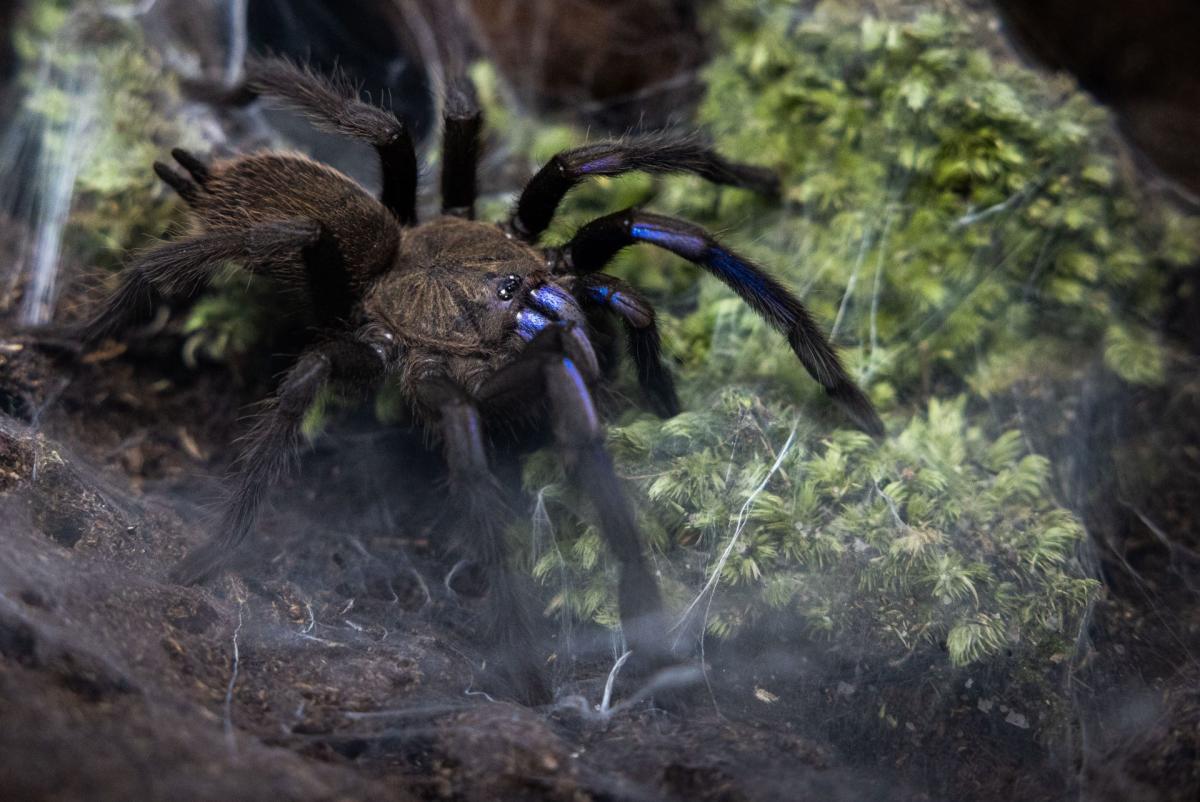A new species of tarantula has been found in Thailand’s mangrove forests, and while scientists are thrilled by the discovery, there is already concern for its habitat.
Mongabay reported scientists found the electric-blue colored spider in the Phang Nga province in 2022, and the findings were published in the ZooKeys journal in September.
The arachnid was previously seen in the pet trade, but the sighting marked the first time it had been seen in the wild in Thailand.
According to expedition lead Narin Chomphuphuang, the tarantulas were seen in hollow trees, and two were captured for study.
Their unique coloring is due to nanostructures on the creature’s hairs that react to light. While black, green, yellow, and red have been seen before, this was the first in blue. Further study after the discovery has revealed this hue can be seen in at least eight different species.
But Narin is concerned about forest clearance to support the palm oil industry in the area where the spider was found.
Global Forest Watch has shown the levels of forest loss across the Khura Buri and Takua Pa regions in the last two decades, with a 13% loss of forest cover in the former and 19% in the latter during this period.
“It is essential to take these steps to prevent further declines in tarantula populations and protect them for future generations,” the study advised.
According to the World Wildlife Fund (WWF), palm oil is used in food, cosmetic products, and detergents, and it is found in around half of the packaged food products that United States residents consume.
Not only has the destruction of forests to clear space for the cultivation of oil palm trees led to habitat loss for endangered species like rhinos, elephants, and tigers, but the WWF noted the burning of land to make way for agriculture is a significant contributor to planet-warming pollution.
This human-caused deforestation led the study’s researchers to ask a few key questions, per the Pensoft blog.
“Are we unintentionally contributing to the destruction of their natural habitats, pushing these unique creatures out of their homes? Or should we advocate for the protection of mangrove forests, not only for the sake of the Electric-Blue Tarantula but also for the preservation of this remarkable jewel of the forest?”
The EU, for example, is set to enforce a new law that would fine companies profiting from deforestation. This is just one way global leaders can help stop a practice that is putting some remarkable species at risk.
Join our free newsletter for weekly updates on the coolest innovations improving our lives and saving our planet.


